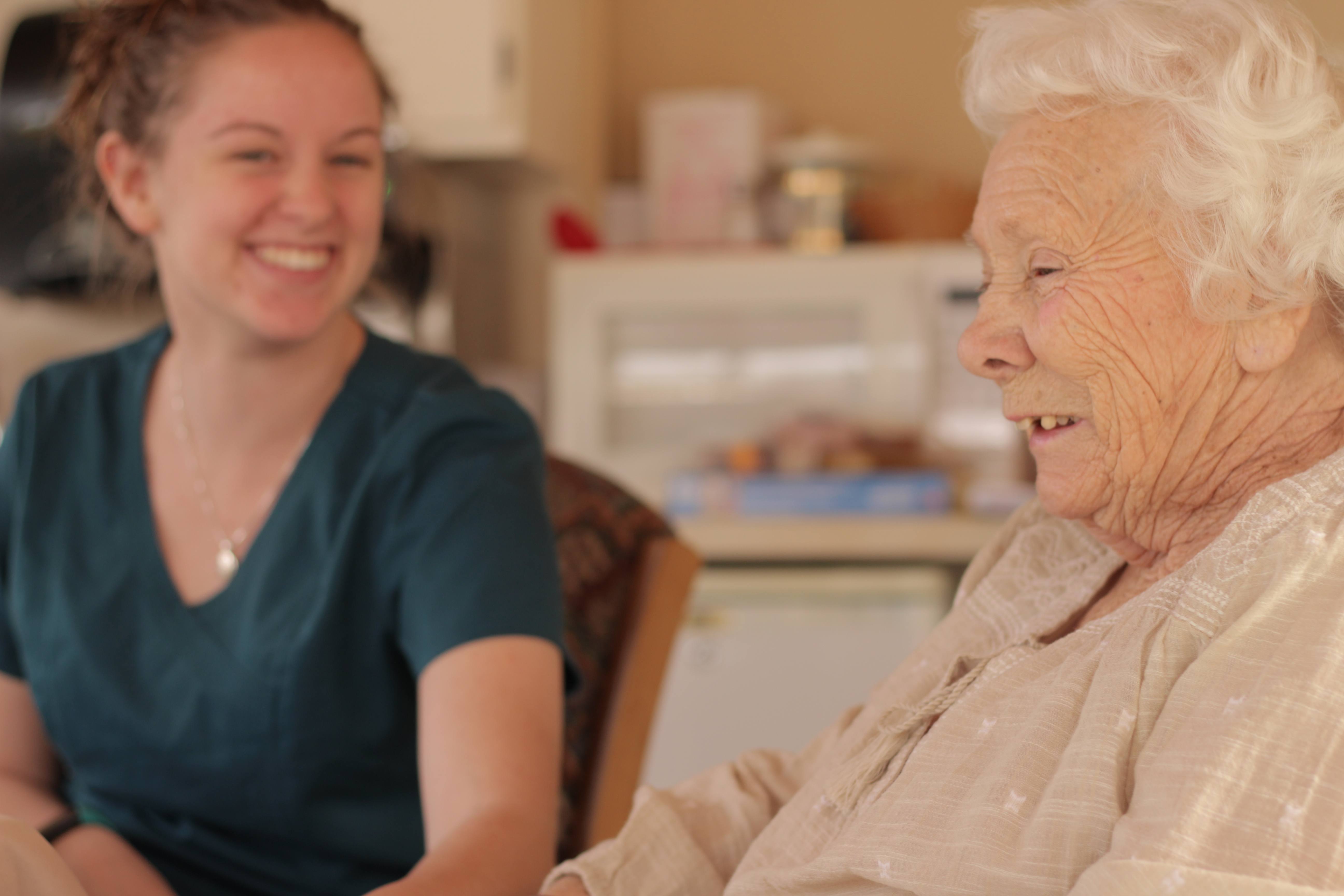After an Alzheimer’s Diagnosis: Is Memory Care the Right Choice for Your Loved One?

In the United States, someone is diagnosed with Alzheimer’s dementia every 66 seconds. Navigating all of the changes that Alzheimer’s brings to one’s life can be overwhelming.
It’s normal to wonder what the future will look like for both you, as a potential caregiver, and for your loved one who is experiencing dementia.
If you have a family member with Alzheimer’s who is living independently or in a personal care setting (also known as assisted living), you may find yourself at a transition point. It may become apparent that their current living situation isn’t suited to meet their unique needs or that you need caring skilled professionals to help assist in their daily life.
Or honestly, maybe you’re just exhausted as you try to balance caring for a parent, maintaining a career, and managing your children’s busy schedules. It may be time to ask for additional help.
Transitioning from Family Caregiving
During the early stages of living with dementia, it may be possible to help care for your loved one yourself. However, as symptoms of memory loss progress, you’ll need to find a healthy living atmosphere responsive to your loved one’s changing needs.
Here are some signs that it may be time to transition your friend or family member to memory care:
- Challenges with medication management, such as forgetting to take pills or taking too many
- Increasing confusion or frustration during conversations
- Safety concerns such as getting lost when walking or driving or forgetting about food on a hot stove
- Change in conditions in the house including piling trash, expired food, or neglected bills
- Change in personal appearance including unexplained weight loss or poor hygiene
And finally, it’s okay to admit as a caregiver that you need to focus on being a spouse, daughter, or friend as your loved one’s needs expand. Memory care can give you the safe space your loved one requires and the respite you likely need.
What is Memory Care?
While you may be familiar with assisted living communities, you may be less familiar with the benefits of specialized memory care homes.
Memory care is typically for people experiencing mild to late-stage dementia and homes are designed with additional safety and structure to minimize stress and confusion for their residents.
Unique features of memory homes that differentiate them from other assisted living spaces:
- Enclosed outdoor courtyards and security
- A fully-equipped spa
- Spacious and bright private rooms and bathrooms
- More frequent check-ins by team members with dementia-specific training
- A greater emphasis on the individual and independence
- Engaging activities designed to maintain or improve cognitive function
Menno Haven Your First Choice for Memory Care
Because Alzheimer’s is a progressive disease, it’s not too early to start making a plan for when the important people in your life can no longer live independently or require specialized care. Menno Haven, South Central Pennsylvania’s largest and most well-respected retirement community, offers Memory Care as part of our services. To speak with a team member about our family-centered memory care homes, visit our website.

